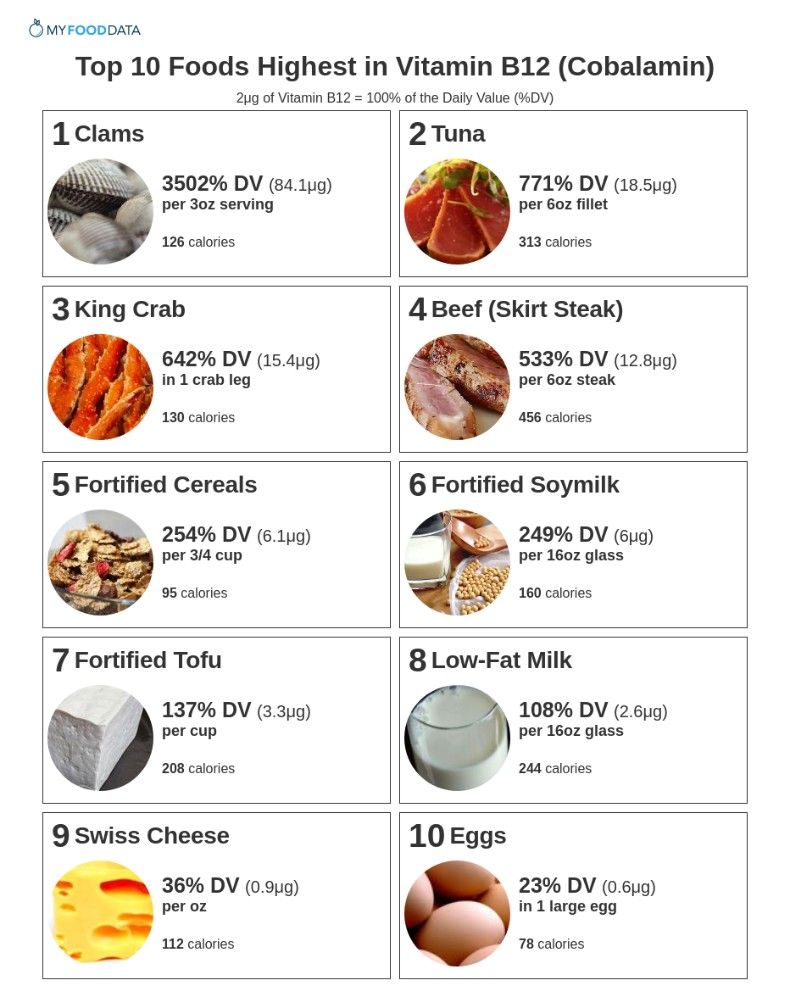Vitamin B12 — facts and fallacies
As always, before starting to work with a new client, I ask them to first send back a fairly comprehensive medical and lifestyle (diet and activity) survey.
Alice (not her real name) wrote that her goals were to lose weight and eat better — she wanted to feel better about what she was eating. Alice was very detailed and shared her most recent blood work and her medical history. A 64-year-old North American expat, she was active, walked daily, and hiked in the Cajas once or twice a month. She had no significant medical issues, and wasn’t taking any prescription medications or supplements.
Reviewing what she sent, none of her blood tests were out of the “normal” range, but something jumped out at me: she had recently gotten an injection of vitamin B12.
When we met for the first time, I asked Alice about t his.
his.
She said that she’d been tired all the time, and her friend suggested that she get a B12 shot. Ah, I said, who gave you the injection? My friend’s acupuncturist, she said. I asked if the acupuncturist tested her for a B12 deficiency? No, she said, but he had assured her that it would help just the same.
Vitamin Alphabet Soup
Is “more is better” appropriate when supplementing with vitamins and minerals? Often not. In fact, vitamins and minerals are not benign, and if someone is not deficient, administering excess, whether it’s from a pill or injection, could have negative outcomes.
All vitamins are either water-soluble or fat-soluble — the classification describes how they’re absorbed and stored in your body. There are 13 different vitamins everyone needs to live healthfully: the B-group vitamins account for eight of those 13.
“B” vitamins include B1 (thiamin), B2 (riboflavin), B3 (niacin), B5 (pantothenic acid), B6 (pyridoxine), B7 (biotin), B9 (folate or folic acid when included in supplements), and B12 (cobalamin).
Vitamin B12 plays an essential role in producing red blood cells, maintaining a healthy nervous system, and converting food to energy. Other roles include in regulating the immune system and mood, and control levels of the amino acid homocysteine, elevated levels of which are associated with heart disease. Like most vitamins, B12 can’t be made by the body. Instead, it must be gotten from food or supplements.
Water-soluble vitamins, vitamin C and B-vitamins are fairly quickly eliminated from the body compared to fat-soluble vitamins.
Fat-soluble vitamins, A, E, D, and K, are stored in fatty tissue and the liver and used as needed.
But B12 is a bit different from other water-soluble vitamins — excess B12 is stored in the liver and stores can last for up to a year or more.
Like all vitamins, the B-vitamins don’t provide energy directly. All vitamins are essential catalysts to the chemical reactions that make our bodies function, but that taking an excess of certain water-soluble vitamins can cause problems.
As reported by ConsumerLab.com, typically, people are not considered B12 deficient until levels go below 200 pg/mL, although older adults may have symptoms at blood levels of 200 to 500 pg/mL. It is medically recommended that people over age 50 get at least 2.4 mcg of B12 daily from supplements or foods fortified with B12.
And therein lies the problem: Some people don’t consume enough vitamin B12 to meet their needs, while others can’t absorb enough, no matter how much they take in. As a result, vitamin B12 deficiency is relatively common, especially among older people. The National Health and Nutrition Examination Survey estimated that 3.2% of adults over age 50 have a seriously low B12 level, and up to 20% may have a borderline vitamin B12 deficiency.
Short-term deficiency of vitamin B12 can lead to anemia, fatigue, mania, and depression, while a long term deficiency can cause permanent damage to the brain and central nervous system.
 But how much is too much?
But how much is too much?
Too much vitamin B6 can cause nerve problems, excess niacin (B3) can cause flushing, and excess vitamin C can cause kidney stones. Excess folic acid (B9) may also mask a vitamin B12 deficiency, which is more common in people over age 50.
As my Nutrition 101 professor taught us, when you take in excess water-soluble vitamins, your kidneys excrete most of the excess in urine. This is why some people say that Americans have the most expensive urine in the world. Mucho dinero is spent on costly vitamin supplements, which end up in the toilet. Because we store little water-soluble vitamins, they need to be consumed daily and deficiencies can show up rapidly, so it’s important to consume a continuous source of water-soluble vitamins daily — ideally from your diet.
Deficiency and Malabsorption
As the Mayo Clinic reports, most people get enough vitamin B12 from a balanced diet. However, older adults, vegetarians, and people who have conditions that affect their ability to absorb vitamin B12 from foods might benefit from the use of oral supplements.
Vitamin B12 supplements also are recommended for women who are pregnant or breast-feeding exclusively and follow vegetarian or vegan diets.
Vitamin B12 deficiency can occur because your diet lacks it, or because your body can’t absorb the vitamin properly. The stomach produces hydrochloric acid which separates vitamin B12 from the protein to which vitamin B12 is attached in food — then B12 combines with intrinsic factor in the stomach — this step is crucial for absorption. No intrinsic factor, no absorption, which leads to pernicious anemia, one of the conditions that may require B12 injections.
Crohn’s disease, celiac disease, and alcoholism make it hard for the body to absorb B12. Additional conditions that interfere with vitamin B12 absorption include:
– Gastritis and H. pylori infection
– Intestinal effects and consequences of from gastrointestinal disease, cancer, or HIV
– Reduced gastric acid secretion secondary to drug therapy like proton pump inhibitors
– Other drugs, like the diabetes drug metformin, which can have gastrointestinal effects
– After gastric bypass supplementation is necessary since there’s inadequate opportunity to absorb sufficient B12 from foods
Other conditions may increase your need for vitamin B12: alcoholism, hemolytic anemia, chronic fever/infections, kidney and liver disease, pancreatic and stomach disease, thyroid disease, and worm infections.
 Diagnosis and Treatment
Diagnosis and Treatment
Harvard Health reports:
Vitamin B12 deficiency can be slow to develop, causing symptoms to appear gradually and intensify over time. It can also come on relatively quickly. Given the array of symptoms a vitamin B12 deficiency can cause, the condition can be overlooked or confused with something else. Vitamin B12 deficiency symptoms may include:
- strange sensations, numbness, or tingling in the hands, legs, or feet
- difficulty walking (staggering, balance problems)
- anemia
- a swollen, inflamed tongue
- difficulty thinking and reasoning (cognitive difficulties), or memory loss
- weakness
- fatigue
While an experienced physician may notice the symptoms and be able to detect a vitamin B12 deficiency with a good interview and physical exam, a blood test is needed to confirm the condition.
It’s a good idea to ask your doctor about having your B12 level checked if you are a strict vegetarian or have had weight-loss surgery or have a condition that interferes with the absorption of food. Or, if you’re over 50 and your diet isn’t rich in B12.
Depending on the severity of the deficiency, eating a better diet and/or taking B12 supplements can bring levels back to normal.
Most physicians will recommend a B12 supplement if deficiency is obvious, but randomized trials have demonstrated that injections may be no better than oral supplementation since injections have drawbacks; they can be painful and may be unnecessary. However, there are certainly occasions when injections may be needed. Read more about testing here.
Although an “Upper Tolerable Intake Level” has not been established for B12, there are some reports of doses of 20 micrograms (mcg) per day or higher causing outbreaks of acne and rosacea.
There is also a study published in JAMA that showed that a high-dose B complex supplement (with 1,000 mcg of B12) hurt, rather than help people with diabetes and advanced kidney disease.
According to MayoClinic.org, recommended dietary amounts (RDAs) are 2.4 micrograms daily for ages 14 years and older, 2.6 micrograms daily for pregnant females, and 2.8 micrograms daily for breastfeeding females.
Since vitamin B12 can only be manufactured by bacteria and can only be found naturally in animal products, however, synthetic forms are widely available and added to many foods like breakfast cereals.
Those over 50 years of age should meet the RDA by eating foods reinforced with B12 or by taking a vitamin B12 supplement. Supplementation of 25-100 micrograms daily has been used to maintain vitamin B12 levels in older people. A doctor and a pharmacist should be consulted for use in other situations.
Let’s talk about Alice
I asked Alice to describe her feelings about why she may be tired all the time. She was surprised at my question but revealed that over the previous six months, she’d felt a lot of stress. Her husband had been hospitalized for a few weeks with a heart condition, and she had been sleeping at the hospital, not sleeping well, and now that he was home, she hadn’t resumed a normal schedule. She said she’d been grabbing fast food and snacks, and her diet had been “horrible.” And she felt so isolated — with the Covid-19 restrictions her usual social life had almost stopped.
Feeling “tired all the time” can indicate something much more serious than a B12 deficiency, and although a deficiency in B12 can definitely make you tired, what if you’re not deficient? There are dozens of reasons someone could be tired all the time ranging from acute stress to depression, to poorly managed diabetes, or over-reliance on caffeine, or …B12 deficiency.
 Tired All The Time? Take a look at your diet and your lifestyle
Tired All The Time? Take a look at your diet and your lifestyle
The best sources of Vitamin B12 include eggs, milk, cheese, milk products, meat, fish, shellfish, and poultry. Some soy and rice beverages as well as soy-based meat substitutes are fortified with vitamin B12. To see if a product contains vitamin B12 check the Nutrition Facts on the food label.
– Replace refined foods — white flour, sugar, white rice — snacks, sodas, fruit juices all are quickly absorbed and play havoc with your blood sugar, lower immunity, and can contribute to low energy.
– Cut back on alcohol — besides interfering with intrinsic factor (preventing the absorption of B12), high alcohol intake over a period of just two weeks can cause a noticeable decrease in the amount of B12 absorbed from the gastrointestinal tract.
– Get enough sleep — but it’s not just the time in bed that counts, it’s the hours spent sleeping that allow you to wake refreshed. The SleepHealthFoundation.org advises avoiding caffeine and alcohol for at least 4 hours before going to sleep. Are you a smoker? A ‘vaper’? You may already know that nicotine interferes with sleep. Click here to assess your personal sleep needs.

Credit: VeganHealth.org
B12 for Vegans
The Vegan Society notes that the only reliable vegan sources of B12 are foods fortified with B12: plant milk (soy, almond, rice – read the labels), other soy products, and some breakfast cereals. They note that “In over 60 years of vegan experimentation only B12 fortified foods and B12 supplements have proven themselves as reliable sources of B12, capable of supporting optimal health. It is very important that all vegans ensure they have an adequate intake of B12, from fortified foods or supplements.”
If you’re following a vegan diet (avoiding all animal products including dairy) or eating very few animal products, the Vegan Society recommends:
Eat fortified foods two or three times daily to get at least 3 micrograms (mcg or ug) of B12
Or take one B12 supplement providing at least 10 micrograms daily
Or take a weekly B12 supplement providing at least 2000 micrograms
Sources
American Family Physician. Vitamin B12 Deficiency: Recognition and Management.
Harvard Health Blog. Vitamin B12 deficiency can be sneaky, harmful.
Mayo Clinic. Vitamin B-12
Medical News Today. A complete guide to B vitamins.
National Care Planning Council. Vitamin B12 and aging.
The Guardian. Everything you need to know about vitamin B12 deficiency.
______________________________
Food, Nutrition, and Your Health columnist Susan Burke March moved to Cuenca after 35 years as a Registered and Licensed Dietitian and Certified Diabetes Educator in the United States. She currently serves as the Country Representative from Ecuador for the Academy of Nutrition and Dietetics.
Susan helps people attain better weight and health, and reduce the risk of heart disease, diabetes, and other conditions that can be improved with smart lifestyle modifications.
Susan is offering “Free” 20-minute consultations for just a $15 (or more – your choice!) donation to one of the important foundations here in Cuenca. It’s a perfect time to address issues such as cooking at home, strategies for weight loss, or boosting your immunity by improving your diet.
Contact her at SusantheDietitian@gmail.com


















